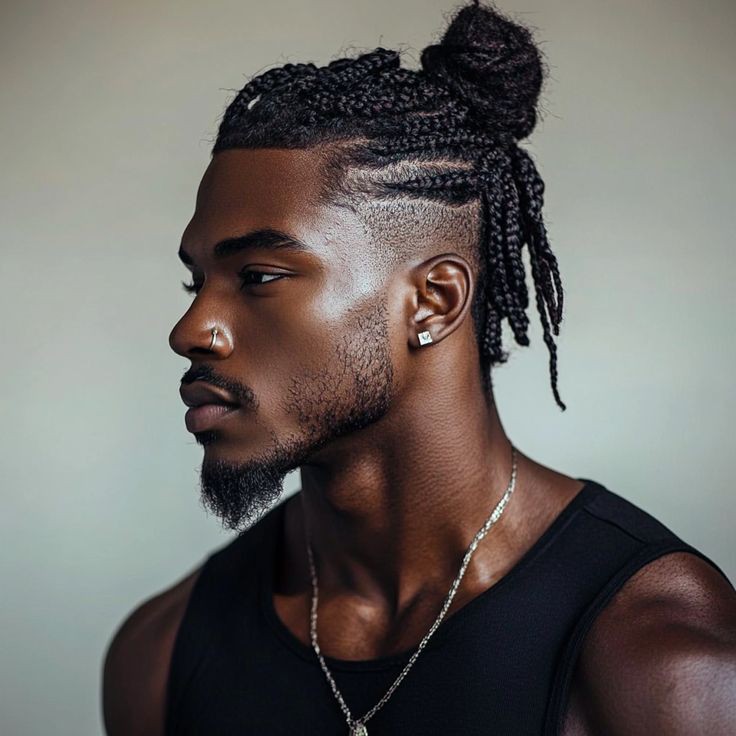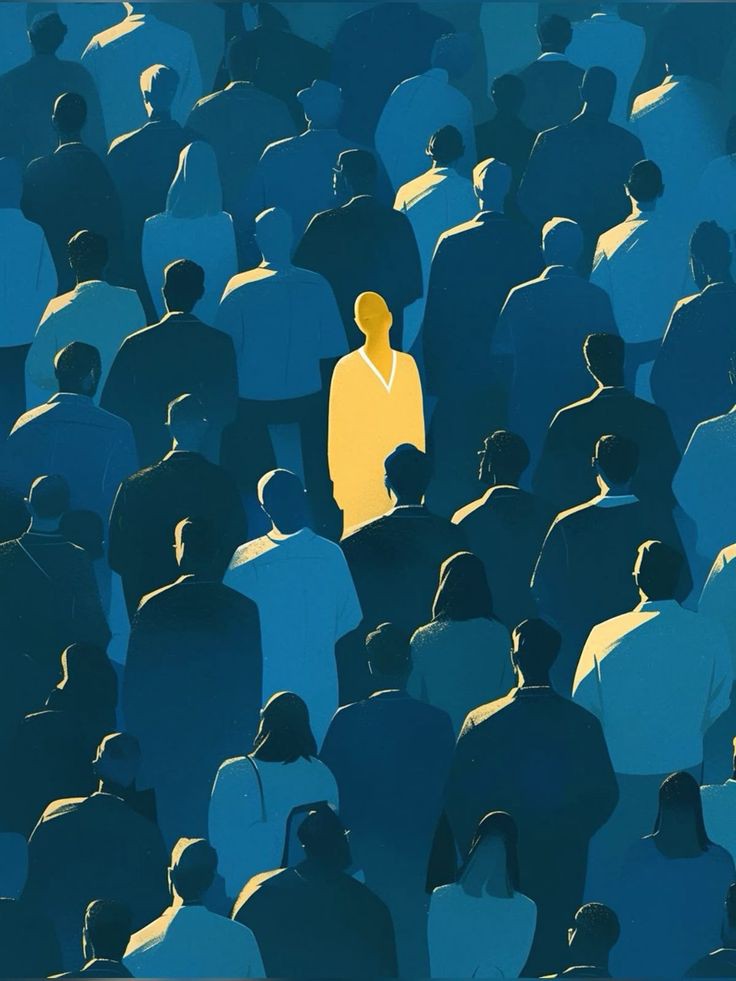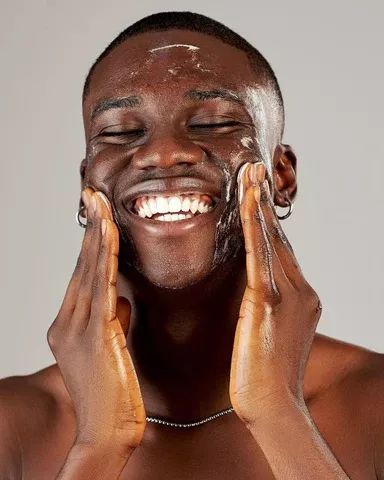Can African Men Be Pretty Too?

There is a boy in Ibadan who stands in front of the mirror every morning, quietly dabbing Vaseline on his lips. His mum bought it for the family, but he hides to use it because his older brother once said, “Why are you shining like a girl?”
He doesn’t talk about it, but he likes the way his skin glows after washing his face with his sister’s cleanser. The way his shirt sits better when he irons it just right. The way he smells after stealing two spritzes of his sister’s body spray.
But no one ever told him that African boys can be pretty. So he hides.
Because pretty in our culture doesn’t mean clean. It doesn’t mean confidence. It doesn’t even mean well-kept. Pretty means weak, feminine, soft, suspicious, gay.
And African men have never been allowed to be any of those things without paying a price.
We Taught Our Boys That Beauty Doesn’t Belong to Them
From the moment they were born, African boys are handed a checklist of what it means to be a man: Don’t cry too much. Don’t talk too softly. Don’t care too much about how you look.
They grow up in homes where self-expression is limited to haircuts and cologne. Where wearing rings or lip gloss makes them a punchline. Where caring about their looks means they are “trying to attract men.”
Even in the barbershop — the one place where men are allowed a little grooming — there is a limit. You can fade your sides, edge your beard, spray your head. But wear a nose ring? Get a manicure? Use sunscreen? You will get looks, comments, slurs.
And worse, no one questions it. No one wonders why grooming and grace are seen as threats. No one stops to ask: Can African men be beautiful in their own right? Not rugged, not macho — just beautiful?
What We Actually Mean When We Say “Pretty”
Let’s be clear: prettydoesn’t mean weak. It doesn’t mean fragile, it doesn’t mean feminine — at least not in the way they have been taught to fear femininity.
Pretty means cared for. It means you cared for your appearance with intention. It means your presence is soft. Your aura is magnetic. Your skin glows not just because you are using the right cleanser, but because you are not at war with yourself.
Pretty is not just about aesthetics, it is about agency. It is about choosing to be seen, choosing to honour your body and face with the same tenderness the world tells you to suppress.
Culture
Read Between the Lines of African Society
Your Gateway to Africa's Untold Cultural Narratives.
So when we say African men can be pretty, what we are really saying is they can be whole.

Photo Credit: Pinterest
The Fear of Softness Runs Deep
Let's not be mistaken, that fear of softness runs deep. It shows up in primary school, when a boy who doesn't like to play rough is called “a girl.”
It shows up in boarding school, when a teenage boy is bullied for spending too long in front of the mirror.
It shows up at NYSC camp, when a guy who does his skincare routine gets side-eyes from his bunkmates.
It is a fear inherited from traditional masculinity, passed down through generations of men who were taught that to be African and male meant to be tough, hard, unshaken, and unmoved.
That beauty, care, attention, softness — those were for women, not you. And it is not just a private fear, it is institutional.
In Nollywood, “fine boys” are either playboys or villains. Online, the moment a man wears something or does something labelled as feminine, paints a nail, or admits to liking skincare, the accusations fly: he is gay, he is weak, he is doing too much.
Because if African masculinity is a prison, prettiness is the escape plan.

Photo Credit: Pinterest
Boys Are Breaking Out Anyway
And guess what? They are breaking out. Loudly, softly and beautifully.
Across Africa, a quiet revolution is happening. Boys are glossing their lips, lining their beards, oil-cleansing at night, having a 6-step skincare routine, wearing a face mask, posting mirror selfies with flower emojis and “soft life” captions.
Culture
Read Between the Lines of African Society
Your Gateway to Africa's Untold Cultural Narratives.
They are not just breaking fashion rules, they are breaking generational trauma. They are unlearning shame. They are saying: “I can be African. I can be masculine. And I can be pretty, too.”
This isn’t a trend, it is a return — a remembering.
Beauty is for Everyone — Yes, Even Boys
Because here is the thing, beauty
is a birthright. It was never gendered. It doesn’t belong to women alone. It is not about sex appeal or seduction, it is about presence, power and peace.
When we let African men be beautiful, we also let them be vulnerable. We let them be human. We give them permission to cry without shame, to express without ridicule, to exist without armor breastplate.
And in doing that, we help rewrite the roles for everyone else too.
When men stop needing to be “strong” all the time, women don’t need to shrink themselves to feel safe.
When boys are allowed to be expressive, girls are freed from being the only ones expected to carry softness and emotion.
Pretty boys don’t just help themselves, they help the world.
Can African Men Be Pretty Too?
The short answer? Yes.
The long answer? They always were. They just were not just allowed to be seen.
But now, we see them in thrift markets, on Instagram reels, on red carpets and roadside barbershops.
We see them applying makeup. We see them arching their brows.
Culture
Read Between the Lines of African Society
Your Gateway to Africa's Untold Cultural Narratives.
We see them choosing scent over sweat. We see them existing not for performance, but for pleasure. Not for applause, but for presence.
And we say: Let them be pretty. Let them be scented. Let them be moisturized and loved.
Because the world is hard enough. The economy is bad enough. The future is uncertain enough. The least we can do is let African men be soft.
Let them be beautiful. They have earned it.
You may also like...
Bundesliga's New Nigerian Star Shines: Ogundu's Explosive Augsburg Debut!

Nigerian players experienced a weekend of mixed results in the German Bundesliga's 23rd match day. Uchenna Ogundu enjoye...
Capello Unleashes Juventus' Secret Weapon Against Osimhen in UCL Showdown!

Juventus faces an uphill battle against Galatasaray in the UEFA Champions League Round of 16 second leg, needing to over...
Berlinale Shocker: 'Yellow Letters' Takes Golden Bear, 'AnyMart' Director Debuts!

The Berlin Film Festival honored
Shocking Trend: Sudan's 'Lion Cubs' – Child Soldiers Going Viral on TikTok

A joint investigation reveals that child soldiers, dubbed 'lion cubs,' have become viral sensations on TikTok and other ...
Gregory Maqoma's 'Genesis': A Powerful Artistic Call for Healing in South Africa

Gregory Maqoma's new dance-opera, "Genesis: The Beginning and End of Time," has premiered in Cape Town, offering a capti...
Massive Rivian 2026.03 Update Boosts R1 Performance and Utility!

Rivian's latest software update, 2026.03, brings substantial enhancements to its R1S SUV and R1T pickup, broadening perf...
Bitcoin's Dire 29% Drop: VanEck Signals Seller Exhaustion Amid Market Carnage!

Bitcoin has suffered a sharp 29% price drop, but a VanEck report suggests seller exhaustion and a potential market botto...
Crypto Titans Shake-Up: Ripple & Deutsche Bank Partner, XRP Dips, CZ's UAE Bitcoin Mining Role Revealed!

Deutsche Bank is set to adopt Ripple's technology for faster, cheaper cross-border payments, marking a significant insti...
